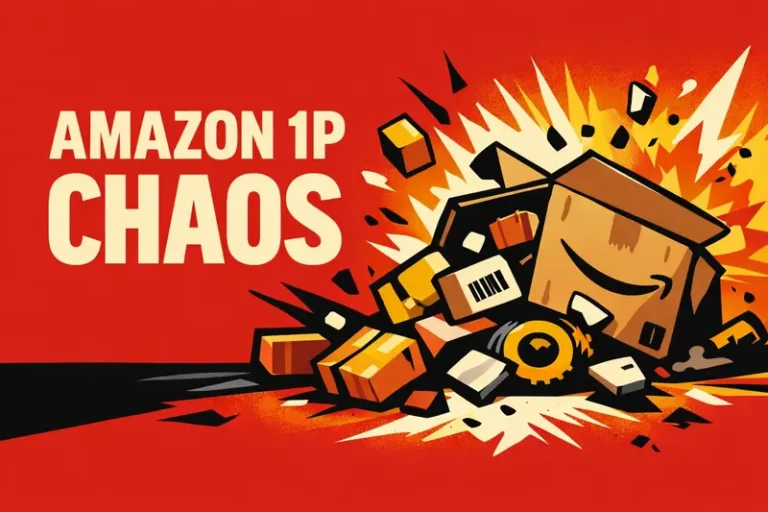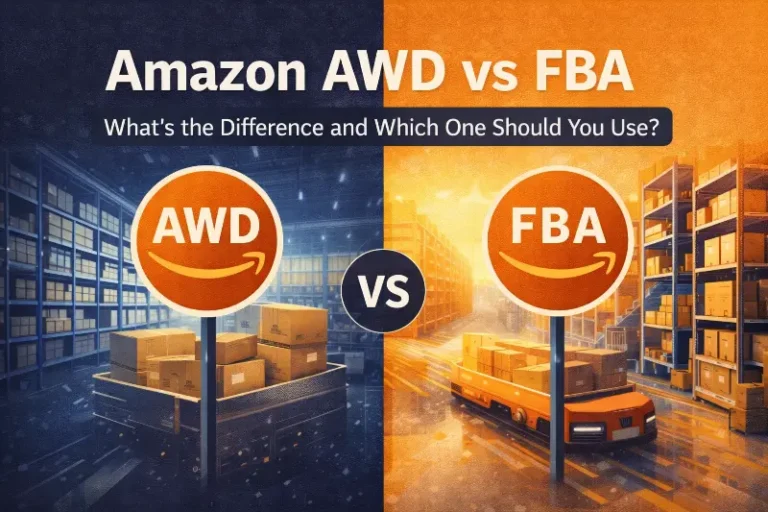AI Tools for Ecommerce: Choosing the Right Tech to Stay Competitive

Last updated on August 21, 2025

In this article
 6 minutes
6 minutes
- Why AI in Ecommerce Is No Longer Optional
- The Power of Data in Ecommerce
- Key Areas Where AI Tools Drive Impact
- Evaluating the Right AI Tools for Ecommerce
- Adoption Challenges: Data Quality and Trust
- The Future: Generative AI in Ecommerce
- Why Adoption Matters More Than Experimentation
- Conclusion
- Frequently Asked Questions
Why AI in Ecommerce Is No Longer Optional
AI has become the hidden engine driving the ecommerce industry. From automated inventory management to personalized recommendations, AI tools for ecommerce are reshaping how online businesses operate. Walmart, Amazon, and Shopify have already made AI a core part of their strategies, which means independent ecommerce businesses need to adopt the right AI technology, or risk falling behind.
AI tools are no longer a futuristic add-on; they are essential for analyzing customer data, predicting demand, improving customer satisfaction, and staying competitive in a market dominated by giants. Sellers who fail to implement AI-powered solutions will find themselves reacting to market trends rather than shaping them.
Slash Your Fulfillment Costs by Up to 30%
Cut shipping expenses by 30% and boost profit with Cahoot's AI-optimized fulfillment services and modern tech —no overheads and no humans required!
I'm Interested in Saving Time and MoneyThe Power of Data in Ecommerce
Ecommerce runs on customer data: purchase history, browsing behavior, customer interactions, and even customer feedback. AI tools allow retailers to analyze this data at scale, transforming raw information into valuable insights. These insights power predictive analytics and personalized recommendations that drive customer engagement and loyalty.
For example, using natural language processing, an AI system can analyze customer reviews and social media posts to identify product issues before they spiral into bad ratings. Competitor pricing can also be tracked in real time, helping retailers adjust pricing strategies dynamically.
Key Areas Where AI Tools Drive Impact
Inventory Management
Poor inventory management leads to either excess costs or missed sales. AI-powered inventory management tools use historical sales data and market trends to forecast demand, ensuring retailers avoid both overstocking and stockouts. These systems adapt to consumer demand patterns and can even factor in seasonality and marketing campaigns.
Marketing Strategies
AI marketing tools automate content creation, generate SEO optimized product descriptions, and evaluate messaging performance. For ecommerce businesses competing with retailers that have entire AI-driven marketing departments, tools that improve campaign targeting and analyze customer behavior are essential.
AI also powers personalized marketing. By analyzing transaction patterns and purchase history, businesses can create tailored email marketing campaigns, targeted promotions, and personalized shopping experiences that boost conversion rates.
Customer Experience
Customer experience is now a key differentiator. AI-powered chatbots and virtual assistants deliver real-time customer service, reducing reliance on human customer service agents while still providing seamless support. Personalized shopping experiences powered by AI keep customers engaged and increase satisfaction.
For instance, AI tools can analyze customer preferences and browsing behavior to make real-time product recommendations. Retail websites that fail to offer this level of personalization risk losing customers to competitors who can.
Supply Chain Optimization
Supply chain analytics powered by AI improves operational efficiency across the retail value chain. From supply chain management to store operations, AI tools help forecast demand, optimize logistics, and lower costs. For ecommerce platforms managing complex supply chains, these solutions ensure better supply chain management and keep customers happy with faster, more reliable deliveries.
Looking for a New 3PL? Start with this Free RFP Template
Cut weeks off your selection process. Avoid pitfalls. Get the only 3PL RFP checklist built for ecommerce brands, absolutely free.
Get My Free 3PL RFPEvaluating the Right AI Tools for Ecommerce
Not every tool labeled “AI” provides value. Ecommerce businesses must evaluate AI tools carefully. Factors to consider:
- Seamless integration with existing ecommerce platforms
- User-friendly interface for non-technical teams
- Detailed analytics to drive data-driven decisions
- Proven track record with leading retailers
- Ability to ensure data quality and protect customer data
Retailers should test AI algorithms against real customer behavior data before fully implementing them. Evaluating AI tools also means comparing ROI across customer retention, sales growth, and operational efficiency.
Adoption Challenges: Data Quality and Trust
AI adoption isn’t without friction. The data retailers rely on often comes from multiple sources, sales data, purchase patterns, social media platforms, and customer feedback. Ensuring data quality is critical. If the data is incomplete or biased, predictive analytics and machine learning algorithms won’t provide accurate insights.
Customer trust is another challenge. Consumers want personalized shopping experiences, but they don’t want to feel surveilled. Retail businesses must balance the use of customer insights with transparent policies around data usage.
The Future: Generative AI in Ecommerce
Generative AI is emerging as the next wave. Gen AI solutions are now capable of writing product descriptions, generating marketing messages, and even designing personalized promotions. Ecommerce platforms that leverage generative AI in content creation and marketing campaigns will have an advantage in producing large volumes of high-quality, SEO optimized content quickly.
Retail companies that adopt these tools now will be positioned to remain competitive as generative AI reshapes the ecommerce industry.
Why Adoption Matters More Than Experimentation
AI tools are only valuable if they’re implemented strategically. Too many ecommerce businesses experiment with pilots but fail to integrate AI deeply into their operations. Leading retailers like Amazon and Walmart aren’t just using AI for marketing, they’re embedding AI across store operations, supply chains, and customer engagement.
Independent ecommerce sellers need to follow suit. Using AI-powered tools for ecommerce isn’t about chasing hype; it’s about survival in a marketplace where data-driven decision making, predictive analytics, and customer-centric strategies are now table stakes.
Scale Faster with the World’s First Peer-to-Peer Fulfillment Network
Tap into a nationwide network of high-performance partner warehouses — expand capacity, cut shipping costs, and reach customers 1–2 days faster.
Explore Fulfillment NetworkConclusion
The ecommerce sector is being redefined by artificial intelligence. Sellers who embrace AI technologies, from predictive analytics and automated inventory management to AI-powered marketing and generative AI, will stay ahead of consumer demand and competitor pricing pressures. Those who hesitate risk irrelevance.
Adopting the right AI tools for ecommerce allows retailers to gain valuable insights, improve customer satisfaction, and remain competitive against giants like Walmart, Amazon, and Shopify. In the future retail landscape, AI won’t just optimize ecommerce operations, it will decide who survives.
Frequently Asked Questions
What are the best AI tools for ecommerce businesses?
The best AI tools for ecommerce include AI-powered chatbots, predictive analytics platforms, AI marketing tools, and automated inventory management solutions. These tools improve customer satisfaction, boost sales, and optimize retail operations.
How can AI improve customer satisfaction in ecommerce?
AI improves customer satisfaction by analyzing customer interactions, purchase history, and browsing behavior to deliver personalized shopping experiences, real-time customer service, and targeted promotions that meet customer preferences.
How does AI impact inventory management in ecommerce?
AI-powered inventory management tools analyze historical sales data and forecast future customer demand. This ensures ecommerce businesses avoid stockouts, reduce excess inventory, and adapt quickly to market trends.
What role does generative AI play in ecommerce marketing?
Generative AI helps ecommerce companies create product descriptions, social media posts, email marketing campaigns, and other marketing materials at scale. These tools allow retailers to optimize marketing strategies and remain competitive.
Why should ecommerce businesses adopt AI tools now?
Adopting AI tools now ensures ecommerce businesses remain competitive as the retail industry embraces artificial intelligence. Early adoption allows retailers to gain valuable insights, improve customer retention, and build sustainable growth strategies before competitors dominate.

Turn Returns Into New Revenue





